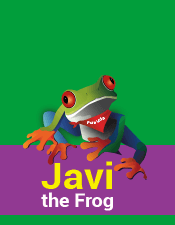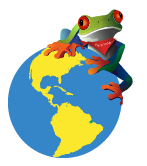Costa Rica’s Language and Slang Words
Ticos having fun in Costa Rica
If you’re considering a visit to Costa Rica, you already know that it’s a gorgeous country with lush forests and rich culture.
To get the most out of your visit, make sure to brush up on your Spanish skills before you visit. The Spanish you’ll hear is similar to what you might have learned in school, but I’ll teach you some uniquely Costa Rican phrases and slang words.
The Costa Rican Motto – “Pura Vida”
The most famous Costa Rican saying is “pura vida.” Literally translated, it means “pure life.” But in this country, it means much more than that. People use it to describe how they’re feeling or someone’s personality. It can be used to describe the general state of things, if everything is fine.
For example, if someone asks how you’re doing as you sit on the beach drinking something cold and fruity, you could tell them, “pura vida.”
People use it as a greeting to their friends, and they even use it to say goodbye.
Costa Ricans embrace this phrase because it represents a laid-back approach to life that focuses on the positive.
Visitors love it because it embodies the calm, relaxing Costa Rican vacation that they are enjoying. The phrase is contagious, and by the time you have to go home, you’ll be saying it too.
Other Slang You’ll Hear in Costa Rica
Costa Ricans often call themselves Ticos. Groups of women can be called Ticas, but any mixed-gender group will be called Ticos, because of how Spanish grammar works.
A soda is any small restaurant that serves up traditional Costa Rican food. It’s a great place to get an authentic taste of the country. Those who love soda in English will want to remember this, so you don’t get disappointed by signs that seem to be promising your favorite beverage.
People use the word “macho” or “macha” to describe somebody with light skin and hair. “Upe” is a word people call out to get someone’s attention, especially when calling someone out of their home or room, so this is a good one to remember.
Jumas means a person who loves to drink all the time; or a drunk. Remember that in Spanish the J is pronounced as an H. For the day after, you’ll want to remember goma, so you can complain about your hangover.
If someone tells you “suave,” they’re asking you to wait. Harina and plata are both slang words for money. The more proper word for money is dinero.
In Spanish, people add “-ito” to the end of words to show that something is small and/or cute. It’s used a lot when talking to babies and children, or as a term of endearment. For example, a perro is a dog, and a perrito is a puppy. Costa Ricans are different: we use “-ico” instead of “ito.”
Avoid Embarrassing Mistakes
In countries other than Costa Rica, toalla means towel. In my lovely country, however, that word means tampon. If you want something to take with you to the beach or the spa, ask for a “paño.” That’s how Ticos say towel.
If you’re trying to tell people that you are embarrassed, avoid making the problem worse by telling them “Estoy embarazado.” You might think you’re telling them about how silly you feel, but embarazado actually means pregnant. It’s a false cognate, so it doesn’t mean what English speakers assume it does.
Instead, you can say “Tengo vergüenza.” That lets people know exactly how you feel. Vergüenza means embarrassed. The “güen” is pronounced as “gwen,” so the word can be said as ver-gwen-sa.
Other Languages Besides Spanish
In Monteverde, you can find descendents of an American Quaker group that moved to the area in the 1950s. Despite their relatively recent immigration, they speak very old-fashioned English. For example, they say “thou” instead of “you.” Many of the people from this community now also speak Spanish.
In the Limón Province, along the coast, you will hear a lot of languages that aren’t Spanish. Lots of people in the area speak English. Many of them are from Jamaica, so they speak Carribean English. People there might also speak a language that combines French, English and Spanish, called Patua or Mekatelyu.
Useful Vocabulary to Remember
If your Spanish is limited, try learning these important vocabulary words before your trip. A little politeness goes a long way, so remember to say please and thank you.
To make your request more polite, add a “por favor” at the end. Try thanking people by saying gracias.
“Boleto” means ticket for transportation, such as a plane or train ticket. Taxi is the same in both Spanish and English.
Important Basic Phrases in Spanish
Even if you don’t speak any Spanish at all, there are a few phrases you might want to memorize before your trip.
Lots of people say that the most important phrase to learn in a foreign language is, “Where is the bathroom?” When in Costa Rica, you can ask, “¿Dónde está el baño?”
If you’re looking for another location, substitute that place in for “el baño.”
Another important question is “¿Cuánto cuesta?” or, “How much does it cost?”
To let people know you don’t speak Spanish, tell them “No hablo español.”
It’s also helpful to learn how to ask for someone who speaks your language. Since English is spoken so widely, chances are someone will be able to help you. Ask, “¿Habla inglés?” if you want to know if someone speaks English. Inglés means English, so that’s the most important half of the phrase to remember.
To let people know you want something, you can tell them, “Yo quiero...” and then fill in the blank.
If it’s something you need, say “Yo necesito...” Remember “necesito” by how it sounds similar to “necessity.”
Even if you don’t know the Spanish translation of something, try saying it English. There are lots of cognates, or words that sound similar and mean the same thing, between Spanish and English.
Having fun on your trip to Costa Rica will be even easier with a little practice of these common words and phrases. The most important one to remember is pura vida: don’t worry, and have fun during your visit!




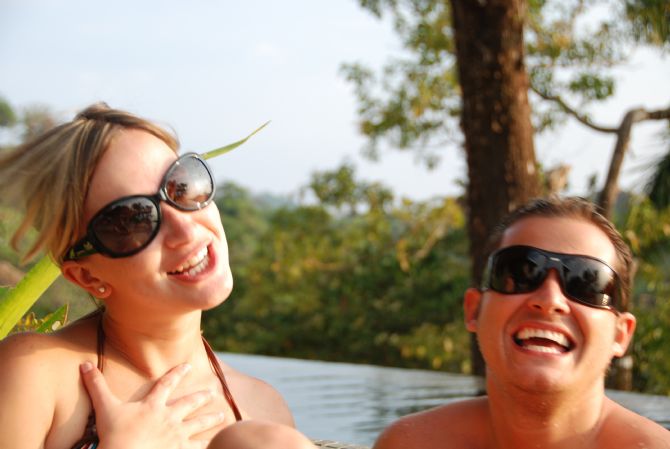
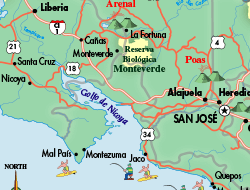
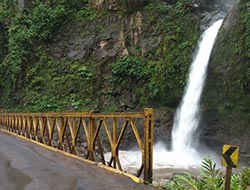

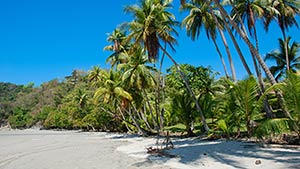



.jpg)




